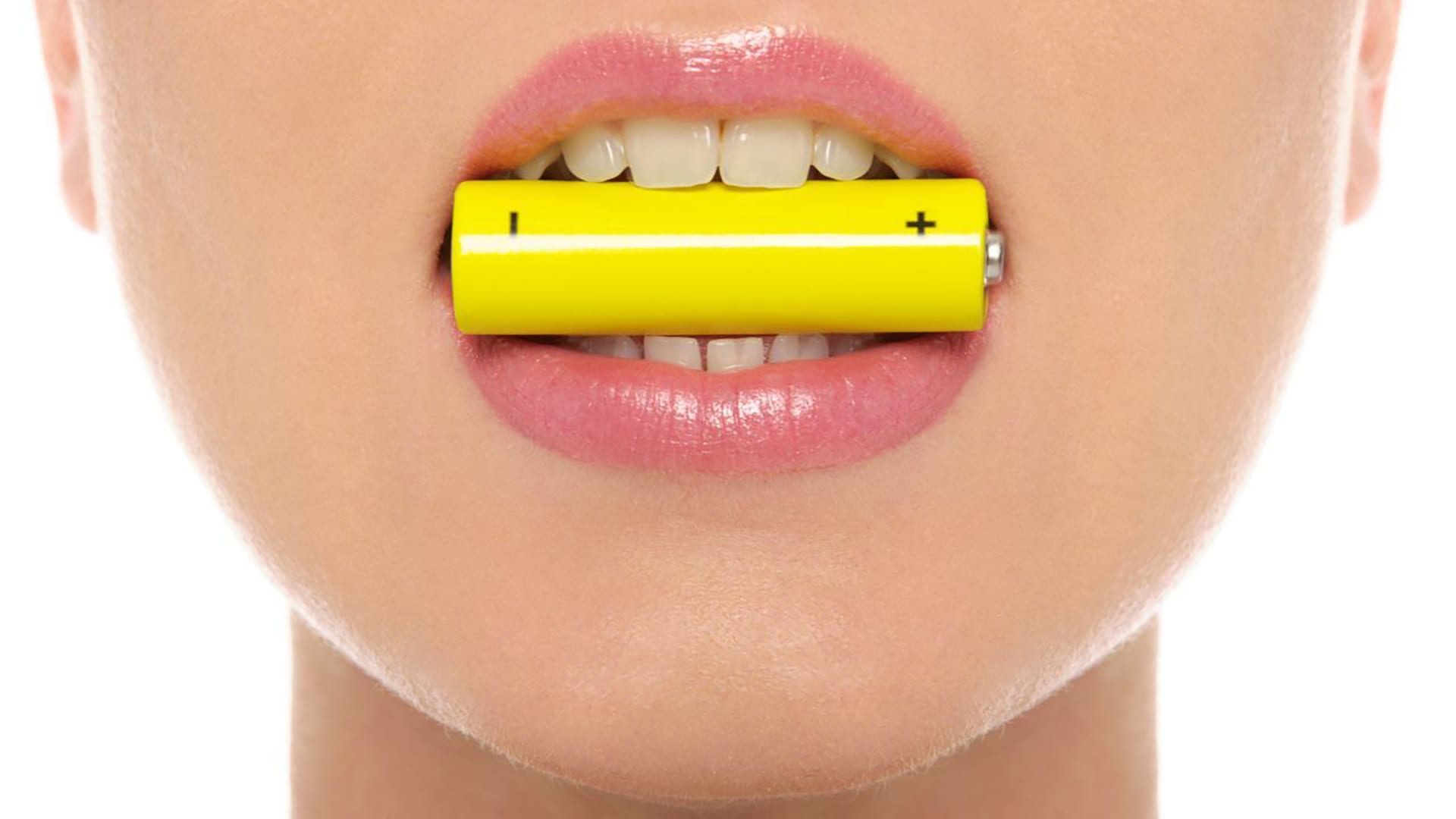Oral galvanism: Metals in the oral cavity as a health risk
Do you suffer from any of the following symptoms?
- Metallic, salty or acidic taste in the mouth
- Burning or tingling of the oral mucosa
- Pain in the mouth of unknown origin
- Increased salivation
The cause is probably oral galvanism due to the presence of metals (crowns, pins, implants, braces, piercing, etc.) in the oral cavity. It’s literally as if you had a battery in your mouth.
Oral galvanism should be addressed – it is associated with a number of autoimmune diseases, e.g. lichen planus (inflammation of mucous membranes in the oral cavity), pustules, rashes, inflammation or irritation of the gums. Other common symptoms include headache, loss of hearing, ringing in the ears, dizziness, visual disturbances, insomnia, chronic fatigue, memory loss and general irritability.

The flow of electricity and ions between different alloys in the oral cavity can cause disorders of the nervous system. The brain generates its own electrical voltage at different frequencies, which affect our emotions, mood, and also physical motoric skills. Since the upper teeth are only about 5 cm from the brain, galvanism can negatively affect physiological brain processes and, consequently, the whole body.
Another unpleasant consequence of oral galvanism is metal corrosion – the very metals that serve as prosthetic replacements for missing or damaged teeth. What’s more, the by-products of corrosion are then released into saliva and get into the body, posing a burden to the immune system.
The treatment, proper diagnosis and removal of metal alloys from the oral cavity is important. Fortunately, today’s dentistry already knows and uses more suitable alternatives to metal alloys for all dental structures. You can choose non-metallic variants of tooth fillings, crowns, bridges, orthodontic materials and implants.